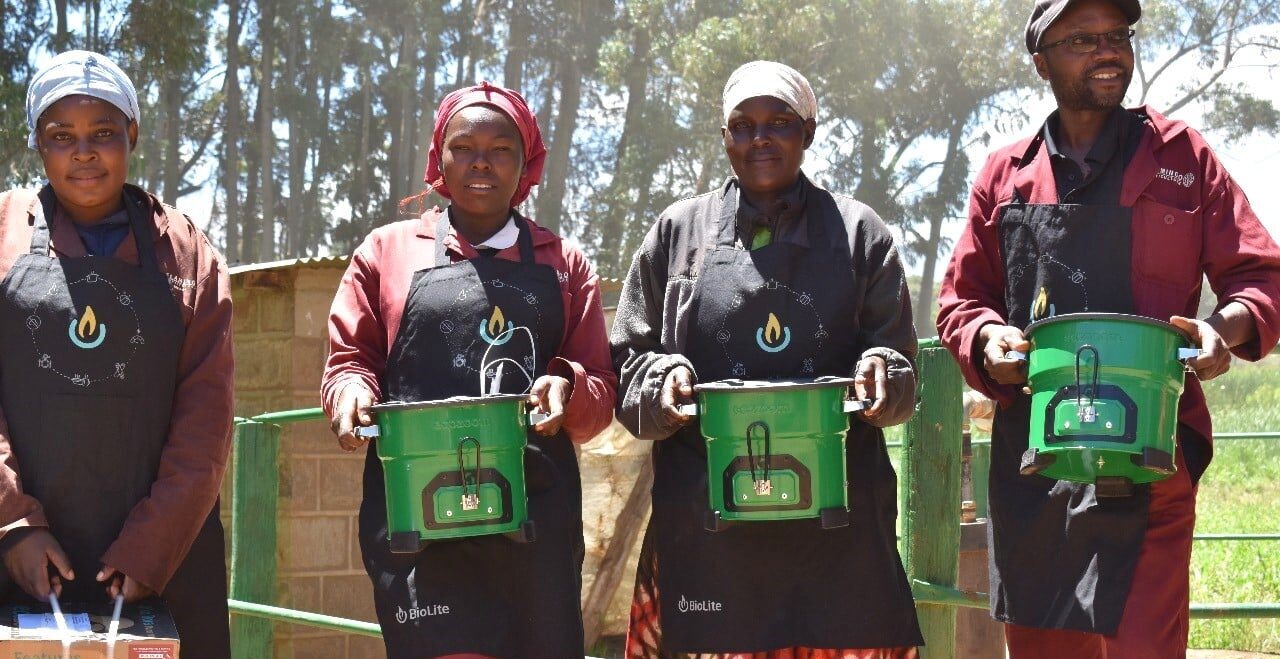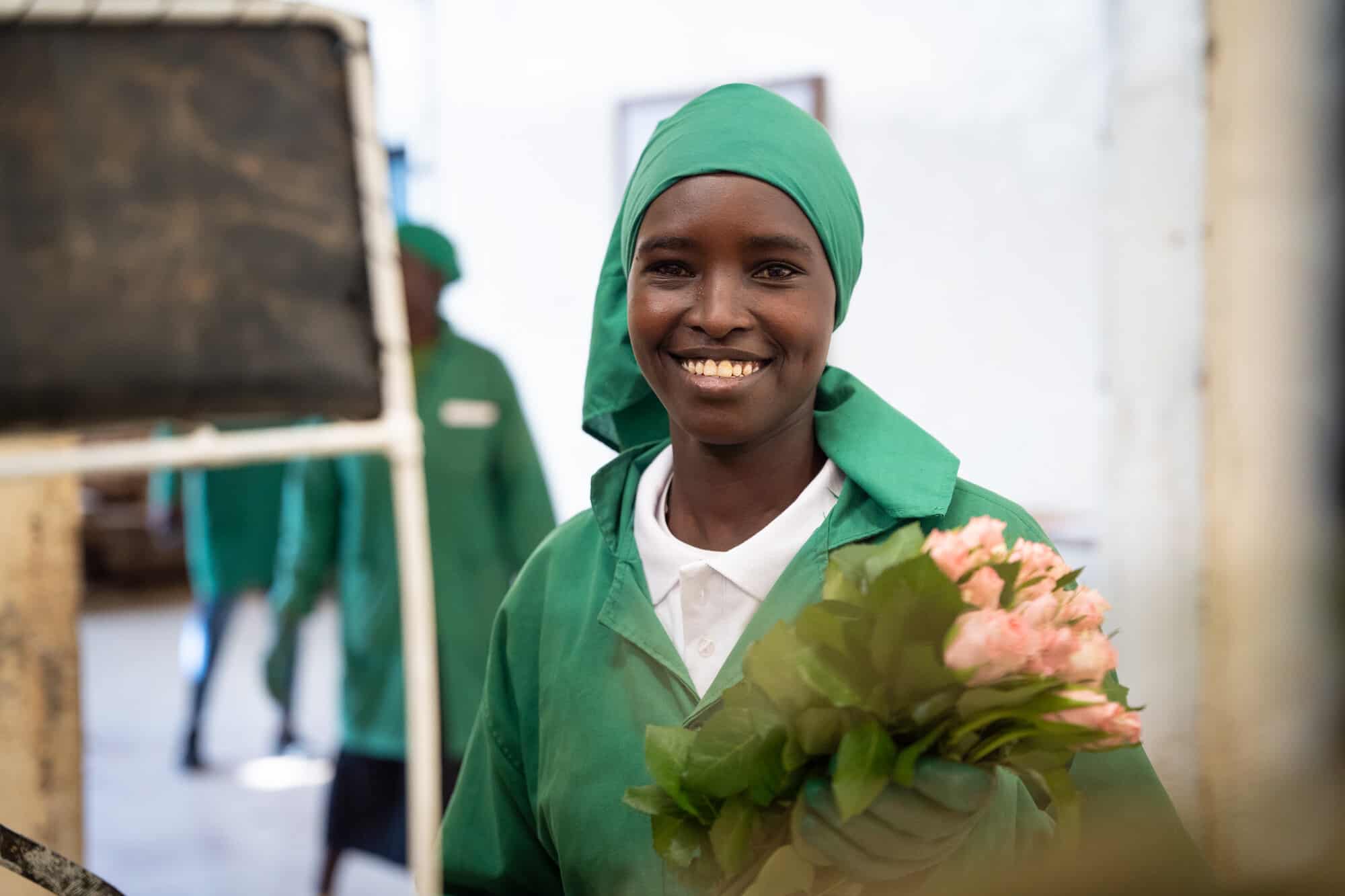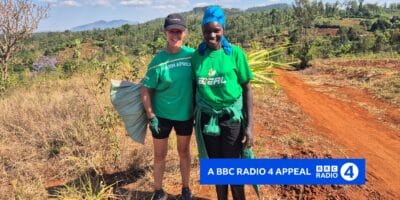News
Kenya
16 September 2024
Waitrose Foundation and Farm Africa support farm workers to adapt to climate change

For many years, smallholder farmers in Kenya have faced challenges including land degradation, declining soil fertility and limited access to agricultural training. Climate change has exacerbated these challenges, causing low agricultural productivity, food insecurity, poor nutrition and job losses due to a fall in demand for labour.
As part of our partnership to improve the lives of farmers and farm workers who grow, pick and pack vegetables and flowers sold by Waitrose, the Waitrose Foundation and Farm Africa are running a climate resilience project in the Mount Kenya, South Rift and North Rift regions of Kenya.
The project, which ran from August 2022 to June 2024, has helped approximately 4,500 flower growers mitigate the impact of climate change and rising living costs. The farmers and growers decided which initiatives received investment.
Renewable energy
At the start of the project, farmers and farm workers told us that electricity and firewood were the main sources of energy used for lighting and cooking at home and those living off-grid used kerosene and candles.
Kerosene and electricity are expensive, and firewood collection is leading to deforestation, as well as being arduous and time-consuming for women, stopping them from engaging in other activities. Cooking with firewood on traditional three-stone stoves is very smoky, contributing to a high incidence of respiratory diseases.
The project helped farm workers and farmers to both save money and protect the environment by switching to renewable, clean energy.
1,275
fuel-efficient cookstoves were given to workers in 2023.
Solar technologies were adopted for use in farming (such as solar-powered water pumps, crop dryers and poultry brooders) and for lighting and powering homes. For cooking, 1,275 energy-saving cooking stoves have been distributed, reducing demand for firewood and charcoal, along with 200 fireless cookers and five installed cookers that use biogas derived from livestock and vegetable waste.
Sustainable livelihoods
Diversification of income sources helps farmers and farm workers reduce the risk extreme weather poses to their livelihoods. We are helping communities to preserve their livelihoods, whilst also protecting the environment, by taking up economically viable activities such as poultry rearing, beekeeping and agroforestry.

Subdivision of farming land has substantially reduced tree cover in rural Kenya, however, these trees had many benefits for farmers. Trees can act as boundaries and wind breakers, prevent soil erosion, conserve water, sequester carbon and provide timber, fuel and fruits that households can use themselves or sell. We have therefore been supporting the planting of indigenous trees alongside cash crops.
The project set up six tree nurseries that have produced more than a million tree seedlings for sale. We also provided farmers with more than 22,000 tree seedlings and supplied six schools with 2,000 indigenous tree and fruit seedlings to support reforestation as well as provide a source of healthy fruit for pupils to eat.
Financial literacy
Financial literacy training has helped farmers and farm workers prepare to deal with income fluctuations associated with short-term contracts or climate-related variations in yields. We delivered training to help participants manage their finances and invest in their future.
We have also supported the establishment and implementation of 100 village savings and loan associations (VSLAs) who are now doing table banking and offering loans to their members. To date the members have saved 3.4 million Kenyan Shillings (KSh), while loans totalling 2 million KSh have been issued to 1,916 members.
Gender equity
Female farmers face additional barriers with the adoption of climate-smart practices, including time spent on domestic chores, male dominance of leadership roles in farming, lack of land ownership, the high costs of farming inputs, and lack of knowledge.
Building on the initial project plan we have included a strong gender focus supported by the UK Foreign, Commonwealth & Development Office (FCDO)’s Work and Opportunities for Women (WOW) programme. This provided additional support to help women overcome these barriers and adapt to the impacts of climate change.

Photo: Lisa Murray
Training in gender and social norms was delivered to 2,640 men and 3,019 women alongside training in renewable energy, agroforestry and financial literacy, creating awareness about the need to engage women in income-generating activities and collective decision making in their households.
For example, at the beginning of a week’s training course in the construction of fuel efficient cooking stoves, 33 out of 36 female participants viewed such work as the preserve of men. By the end of the week, all 36 women agreed women could be artisans too.
Third Sector Awards
In May 2023, the Waitrose Foundation and Farm Africa won the ‘Food & Beverage Charity Partnership of the Year’ award at the Third Sector Business Charity Awards held in London.
"A wonderful initiative. This is a good example of what all food and beverage retailers should be doing to ensure sustainability right through the supply chain."
Third Sector Business Charity Award judges
This story is from Farm Africa’s 2023 annual review. Find more case studies from our projects and download our annual review here.




